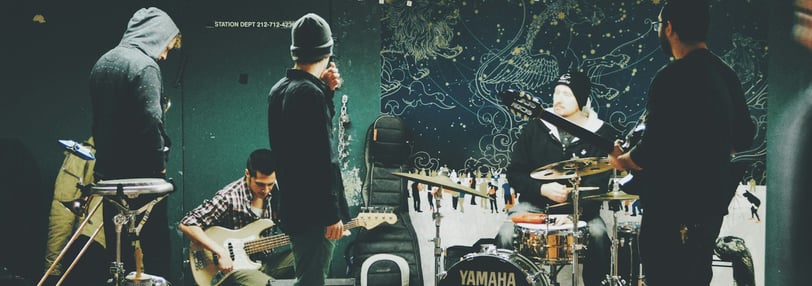How to Protect Your Hearing When Working in the Music Industry
Discover how musicians and DJs can protect their hearing from the damaging effects of constant loud noise on stage and during concerts.
ABOUT MUSIC
7/6/20243 min read


Hi there! Imagine this: you're at a concert, the music is blaring, adrenaline is pumping, the crowd is going wild. For the audience, it's an exhilarating moment. But what about those on stage? How can constant loud noise affect you? Let's delve into this topic in more detail.
Loud Noise and Its Consequences
Musicians, DJs, and stage crew are constantly exposed to loud music. At concerts or music festivals, noise levels can easily exceed 100 dB, far above the safe level for human hearing. Prolonged exposure to such noise can have serious consequences.
The first thing you might notice if work in such an environment is ringing in your ears, known as tinnitus. This constant ringing can be a sign of damage to your auditory system. Without proper protection, this can lead to permanent hearing loss.
For example, Pete Townshend of The Who has spoken about his deafness, which developed after years of performing. Eric Clapton also suffers from tinnitus and partial hearing loss, while Phil Collins was forced to retire from touring due to hearing issues.
The image is created using AI


Hearing Protection on Stage
Fortunately, there are various ways to protect your hearing, allowing musicians, DJs, and stage workers to continue their work without harming their health. One of the most effective methods is using special musician's earplugs. These earplugs reduce noise levels while preserving sound quality. This allows musicians to hear the music and their performance without risking their hearing.
Another popular solution is in-ear monitors. These devices allow musicians to control the sound they hear, reducing the overall noise level on stage. Monitors deliver high-quality sound directly to the ears, enabling a lower volume of ambient noise.
Besides technical aids, it's also important to take breaks during rehearsals and performances. This gives your ears time to rest and recover from the impact of loud noise. Regular hearing check-ups with specialists will also help to detect and address any issues early.


Working in Home Studios
It's not just concerts that can damage musicians' hearing. Those who work in home studios are also at risk. If you often spend many hours wearing headphones while working on mixes and recordings, the high sound pressure levels directly next to your ears can lead to hearing damage. This is especially true if musicians listen to music at high volumes for extended periods. This can cause the aforementioned tinnitus, ear fatigue, and potential hearing degradation with long-term consequences.
How to Protect Yourself?
To protect your hearing while working in home studios, follow these simple rules:
Control the Volume: Try to keep the volume at a level that doesn't exceed 60% of your headphones' maximum capacity. Regularly check to ensure you're not listening to music too loudly.
Take Breaks: Every 60 minutes, take a 5-10 minute break to let your ears rest. This helps reduce the risk of ear fatigue and damage.
Use Quality Headphones: Invest in headphones with high sound quality and protection against excessive sound pressure. These can be noise-canceling headphones, which allow you to listen to music at a lower volume.
Monitor Sound: Use external monitors (speakers) instead of headphones when possible. This reduces the time spent wearing headphones and helps preserve your hearing.
Conclusion
Protecting your hearing is an extremely important aspect of the career of any musician or DJ, whether you're performing on stage or working in the studio. Using protective measures, limiting the time exposed to loud noise, and regular hearing check-ups can help you avoid serious problems. Remember, your health is your most valuable resource, and taking care of it will allow you to continue bringing joy to your audience for many years to come.


SHARE
Copyright © 2022 Synergy. All rights reserved.
Join Our Music Community
GET UPDATES IN YOUR MAILBOX
